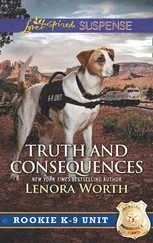Some to cut corn,
While you and I, dilly dilly,
Keep ourselves warm.
“That’s so nice,” Delia murmured, opening her silver-gray eyes, now rimmed with long wet dark lashes. “You know, I used to be called Dilly when I was little.”
“Really.” Coincidence was still working against him, Alan thought. Or for him. “How are you feeling?” he asked.
“A bit better, you know. I think maybe the pill’s going to work this time. Or maybe it’s your singing. You have a wonderful voice, so soothing.” She reached out one soft white hand to touch his.
“Thank you.” I must get out of here before I do something stupid, Alan thought. Aware again of his pain, he rose agonizingly to his feet, leaning on the arm of the sofa.
“Don’t go yet.” Delia smiled at him through the gloom. Already she looked less ill: a rosy flush had come into her face. As she pushed herself up slowly, her blouse slipped down to half reveal one pale, rounded breast in a border of crumpled white lace. “Come on. Sit down again.”
“I can’t—my back,” Alan said. “It hurts like hell if I sit for more than a few minutes.”
“Ah.” Unlike everyone else he knew, Delia did not express sympathy. “So what do you take for it?” she asked.
“Different things.” Then, not wanting to seem rude, he added, “Codeine mostly. And alcohol.”
“Does that work for you?”
“Well, sometimes. But if I mix them or take too much I get a splitting headache. Not a migraine like yours, at least from what I’ve heard, but a kind of steady hammering pressure.”
“I’ve had that. It’s agony. Vodka is a help, but what I really like is morphine, only it’s so hard to get here.”
Alan looked at Delia with some surprise, realizing that they were having exactly the same sort of conversation that he often had with his back-pain pals. She’s an invalid too, he thought, feeling for the first time a rush of warmth that wasn’t admiration or lust. “I know,” he said. “It really works for me too.”
“I went to see this silly little woman at the University Health Center, and she started whining about how it wasn’t medically advisable. That’s so stupid. My doctor in New York says you can’t get addicted to morphine if you only take it for serious pain.”
“Mine says the same thing. Would you like to go and see him? I’ll give you the name.”
“Not now, thanks. I’m going down to New York soon, I can get a new prescription then. I could have brought more with me, but I know it’s a mistake to block all my pain. Even if I could.”
“How do you mean, a mistake?” Alan asked. “Hell, if I could block all mine without side effects, I’d do it like a shot.”
“It’s cowardly. I know my migraines come for a purpose. They’re bringing me something I need.”
“Really?”
“But you must feel that too, about your pain. It’s there for a reason. I mean, don’t you feel sometimes, when you lie there suffering, that images or messages are coming to you, ones you’d never find otherwise? I know some of my best stories began as those strange kind of half-dreams, half-hallucinations I have late at night, or just before dawn, when I’m totally exhausted with a migraine. Isn’t it like that for you too?”
“Sometimes,” Alan admitted, remembering that the idea of turning the Plaza Fountain into a picturesque ruin had in fact occurred to him as he lay awake in agony one black rainy night last summer.
“When my aura starts, there’s no way of knowing what will come. Sometimes there are visions, sometimes nightmares, sometimes just blackness, oblivion.”
“There’s times I could use some oblivion.”
“Yes, but we can’t choose. In the end you have to accept your affliction as a gift. You have to ask, what is it trying to tell you, to give you? What has it saved you from, what has it brought you?”
“I hadn’t thought of it like that,” Alan said. It’s brought me Delia Delaney, he thought suddenly. If my back were well, she wouldn’t be speaking to me so intimately.
She leaned toward him, her eyes hypnotically wide. “Inspiration comes from a dark, distant place, and it can’t come without pain. When I feel a migraine starting, it’s as if I can see these great black things flying towards me over the hills and over the city, half-bird and half-bat, with their claws out and their beaks open. Coming to hurt me and help me.”
“Mine is just a big ugly reddish brown lizard,” Alan said. “Only it’s always there, in my back.” He laughed awkwardly; he had never mentioned the lizard to anyone, not even Jane.
“But you can numb it with alcohol and drugs,” Delia suggested. “Stupefy it.”
“Oh yes. And then I’m numb and stupid too.”
“Yes.” Delia nodded. “I know all about that. Your life becomes a blur, a sort of sodden, mean half-life. There’s some pain still, but nothing to show for it.”
“No,” Alan said. “And then you keep thinking stupid things. Like, It’s not fair. Why should I have this pain, and not other people? I mean, well, for instance”—he laughed awkwardly—“Jane and your husband aren’t attacked by bats and lizards.”
“But they’re not creative people,” Delia said. She sat forward on the sofa and ran both hands through her tangled hair, combing it out into a great skein of red-gold silk.
“Are you feeling better?”
“Yes,” she said tentatively. “Yes, it’s gone. All gone. I’m just a little dizzy.” She stood up, putting one hand on Alan’s arm to steady herself. The crumpled white washing resolved itself into a gauzy low-necked blouse and a long pale flowered and ruffled skirt above bare white feet.
“Oh, lord,” she added as if to herself. “Look at that, what a disaster.” She held out one hand, and Alan, touching Delia deliberately for the first time, took it. Delia did not pull away, but let her hand lie in his own, trembling slightly, cool and soft, with white rounded fingers, each of which ended in a long sharp silver-pink talon. It was like holding an exotic marine creature, he thought, some pale starfish or sea anemone.
“I don’t see any disaster,” he said.
“It’s the polish. It’s all chipping.”
Alan bent closer; it was true that here and there the talons of the anemone were speckled with flakes of a darker rose. “It looks fine to me,” he told her. “But I don’t see—” he added, struck by this for the first time, “I mean, how can you do anything with nails that long?”
“What sort of anything do you mean?” Delia asked, smiling oddly.
“I don’t know. Cook, clean, shop, sew—the things women do.”
“But I don’t do those things anymore.” She gave a little laugh and slid her hand softly away. “I especially don’t do them, and my nails are a sign that I don’t.”
Alan looked from Delia’s hands, now clasped in a double underwater flower, to her smiling face. “Even so, isn’t it hard for you to work—to type on a computer?”
“But I don’t. That’s the point,” she murmured, smiling up at him.
“But then, how can you write?”
“Oh, I can write. I always write by hand anyhow.” She turned toward her desk, which, Alan realized now, was empty of electronic devices. It held only a vase of flowers, a stack of pale-green paper, and a flowered china mug full of pens. “It’s the natural way—has been for thousands of years.”
“Yeah, but—” Alan said, mesmerized.
“I despise the idea of being separated from my words by a machine. I want them to flow directly from my mind down my arm into my hand and out onto the paper in one uninterrupted motion.” Delia demonstrated, stroking her bare rosy arm, long fingers, pointed seashell nails, and an imaginary sheet of paper in one slow, graceful gesture. “Just the way you do when you’re drawing, you know.”
Читать дальше







![Кэмерон Доки - Правда и ее последствия[Truth and Consequences]](/books/79610/kemeron-doki-pravda-i-ee-posledstviya-truth-and-con-thumb.webp)




